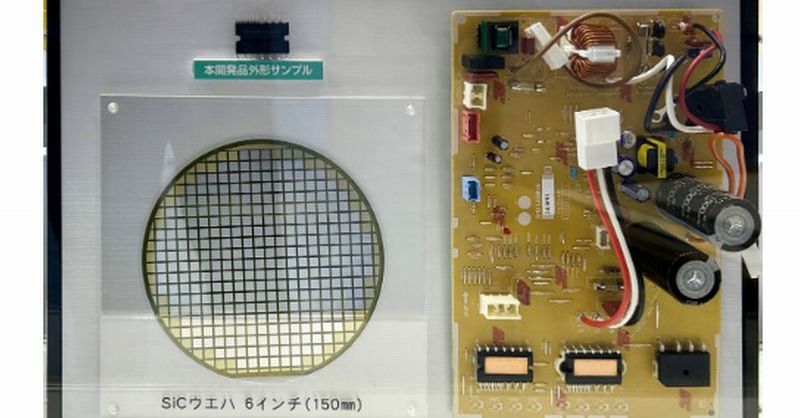Next-Gen ACs: SiC IPMs Revolutionizing Energy Efficiency
The air conditioning industry is undergoing a significant transformation, driven by the urgent need for energy-efficient cooling solutions. Enter Silicon Carbide (SiC) Insulated Gate Bipolar Transistors (IGBTs) and Integrated Power Modules (IPMs), poised to revolutionize AC technology and significantly reduce energy consumption. This article delves into the exciting advancements in SiC IPMs and their impact on the future of air conditioning.
What are SiC IPMs and How Do They Work?
Traditional ACs rely on IGBTs made from silicon. While effective, silicon IGBTs suffer from limitations in switching speed and energy loss, especially at higher frequencies. SiC, a wide-bandgap semiconductor, offers superior performance. SiC IPMs boast:
- Higher Switching Frequencies: This leads to smaller, lighter, and more efficient power converters.
- Lower Switching Losses: Significantly reducing energy waste and improving overall efficiency.
- Increased Power Density: Allowing for more compact and powerful AC units.
- Improved Thermal Management: Leading to longer lifespan and reduced maintenance.
These advantages translate to a dramatic improvement in energy efficiency, directly impacting both operational costs and the environmental footprint of air conditioning systems.
SiC IPMs vs. Traditional Silicon IGBTs: A Comparison
| Feature | SiC IPM | Silicon IGBT |
|---|---|---|
| Switching Speed | Significantly faster | Relatively slower |
| Switching Losses | Significantly lower | Higher |
| Power Density | Higher | Lower |
| Operating Temperature | Higher | Lower |
| Cost | Currently higher, but decreasing rapidly | Lower |
The Environmental Impact of SiC IPM-Based ACs
The increasing adoption of SiC IPMs in air conditioners promises significant environmental benefits:
- Reduced Greenhouse Gas Emissions: By drastically cutting energy consumption, these ACs contribute to lower carbon emissions, combating climate change.
- Lower Energy Consumption: This translates to significant savings on electricity bills for consumers and reduced strain on power grids.
- Sustainable Cooling Solutions: SiC IPM technology contributes to the development of more sustainable and eco-friendly cooling solutions.
Market Trends and Future Outlook for SiC IPMs in ACs
The market for SiC IPMs is experiencing rapid growth, driven by the increasing demand for energy-efficient appliances. Major manufacturers are investing heavily in research and development, leading to cost reductions and wider adoption. We can expect:
- Increased Availability: SiC IPM-based ACs will become increasingly common in the coming years.
- Falling Prices: As production scales up, the cost of SiC IPMs is expected to decrease, making them more accessible to a wider range of consumers.
- Innovation in Design: We can expect more innovative and compact AC designs enabled by the superior performance of SiC IPMs.
Conclusion: A Cooler, Greener Future
SiC IPM technology represents a significant leap forward in air conditioning technology. By offering superior energy efficiency, reduced environmental impact, and improved performance, SiC IPMs are paving the way for a cooler and greener future. As the technology matures and costs decline, its widespread adoption is almost certain, transforming the way we cool our homes and businesses.
Keywords: SiC IPM, Silicon Carbide, Insulated Gate Bipolar Transistor, Integrated Power Module, Energy Efficiency, Air Conditioning, AC, Green Technology, Sustainable Cooling, Climate Change, HVAC, Power Electronics, Semiconductor Technology
Internal Links: (Example - replace with actual internal links to relevant articles on your site)
- [Article on Sustainable Technologies]
- [Article on Energy Efficiency in Homes]
External Links: (Example - link to relevant research papers or industry reports)
- [Link to a research paper on SiC devices]
- [Link to an industry report on the HVAC market]
Call to Action: Learn more about the latest advancements in energy-efficient cooling solutions by subscribing to our newsletter! (Link to newsletter signup)
